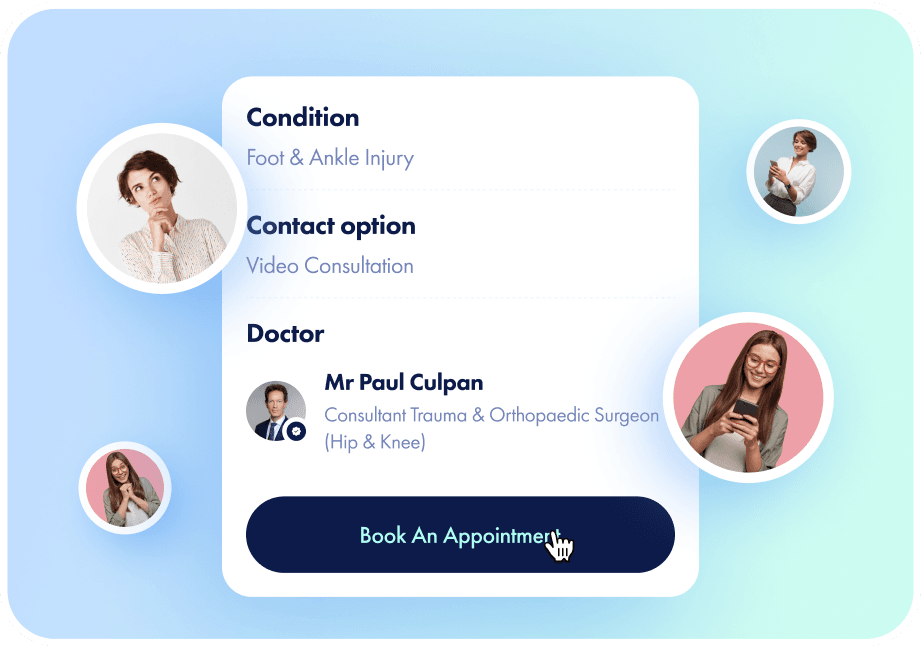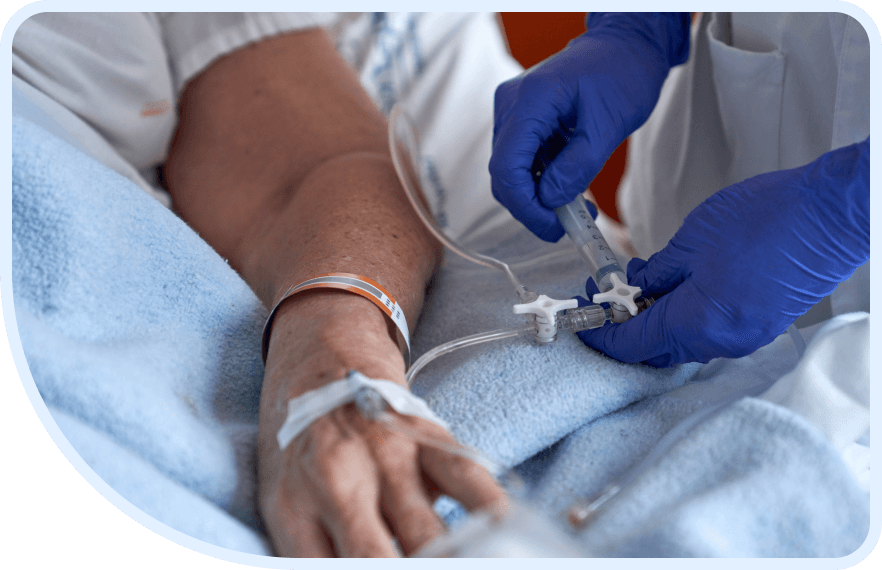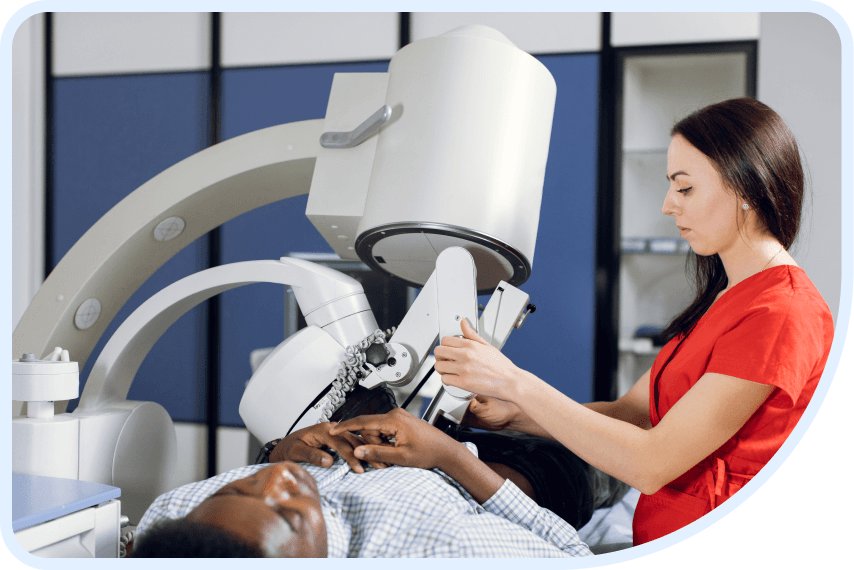
Conveniently reserve your spot with just a few clicks through our easy-to-use online booking system.


Lymphoma is a type of cancer that affects the lymphatic system, a network of vessels and tissues that helps fight infection. It develops in white blood cells called lymphocytes, which can grow abnormally and form tumours in various parts of the body.
You are not required to provide a referral letter from your doctor or GP.
Start a visit quickly and discreetly whenever works best for you.
Our doctors review symptoms, prescribe treatments if needed.
Proceed with your healthcare journey as you wish. You're in control.
You control medical records, access anytime.
When you visit your doctor with concerns about lymphoma, they'll start with some basic questions like the following:
Are you experiencing any pain? Where?
How's your appetite?
Have you lost weight recently?
Do you often feel tired or weak?
What are your past medical issues and treatments?
What's your family's medical history like?
Your doctor will then do a physical exam, paying close attention to your lymph nodes. Swollen nodes don't always mean cancer—they're often just a sign of an infection.
Сontact us to schedule an appointment or learn more
Conveniently reserve your spot with just a few clicks through our easy-to-use online booking system.
Have a question or request? Drop us a message, and our team will get back to you promptly.
Feel free to give us a call, and our friendly staff will be glad to assist you over the phone.
To confirm whether it's lymphoma, you might need a few tests:
A part or an entire lymph node is removed, or a sample is taken with a needle.
This involves taking a bit of fluid or tissue from your bone marrow to check for lymphoma cells.
This is a simple way to look inside your chest using a bit of radiation.
This uses magnets and radio waves to get detailed images of your body's insides.
This special scan uses a radioactive substance to find cancer cells.
This test looks for genetic changes in cancer cells, helping to identify the lymphoma type.
These check for specific cell counts, substance levels, or signs of infection in your blood.
From Home or Face to Face, all at your convenience
Schedule a Video Consultation or a Face-to-Face appointment at your convenience by using our online booking system.
Schedule a Video Consultation or a Face-to-Face appointment at your convenience by using our online booking system.
Your dedicated Specialist Doctor will provide you with personalized treatment, tailoring it to your specific needs, and may include necessary medication.
Treating lymphoma involves several methods, and what's best for you depends on your lymphoma type, stage, overall health, and personal preferences.
Here are some treatment options:
Treating lymphoma involves several methods, and what's best for you depends on your lymphoma type, stage, overall health, and personal preferences.
Here are some treatment options:
Active Surveillance:
For slow-growing lymphoma, you and your doctor might opt to monitor your condition and start treatment only when necessary.
Chemotherapy:
This involves drugs that target fast-growing cells, like cancer cells. It can be given through a vein or as pills.
Radiation Therapy:
High-energy beams, such as X-rays, are used to destroy cancer cells.
Other Treatments:
This includes targeted drugs that attack specific cancer cell abnormalities, immunotherapy to boost your immune system against cancer, and CAR T-cell therapy, which involves engineering your T cells to fight cancer and then re-infusing them into your body.
This is usually treated with a combination of chemotherapy and radiation.
Depending on the stage, it can be treated with localised radiotherapy, combination chemotherapy, or both. For aggressive NHL, immediate chemotherapy and "involved field radiotherapy" (targeting only the affected area) may be required.
Lymphoma treatments can have side effects. Communicating with your medical team about any symptoms and finding ways to manage them is crucial.
Diet and exercise, for example, play a significant role in your well-being during treatment:
Consult a dietitian to guide you on the best foods to support your treatment.
Activities like walking or swimming can reduce fatigue and improve overall well-being during treatments.
Lymphoma treatments can have side effects. Communicating with your medical team about any symptoms and finding ways to manage them is crucial.
Diet and exercise, for example, play a significant role in your well-being during treatment:
Consult a dietitian to guide you on the best foods to support your treatment.
Activities like walking or swimming can reduce fatigue and improve overall well-being during treatments.
If you're navigating a diagnosis or seeking more information about lymphoma assessment and treatment options, we're here to support you.
Schedule an appointment at our London-based clinic, where our team of experts is committed to providing personalised care and guidance every step of the way.













